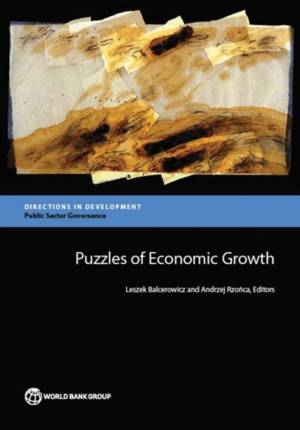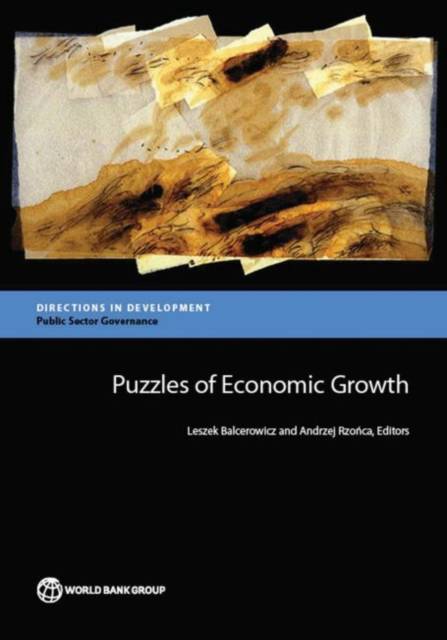
- Afhalen na 1 uur in een winkel met voorraad
- Gratis thuislevering in België vanaf € 30
- Ruim aanbod met 7 miljoen producten
- Afhalen na 1 uur in een winkel met voorraad
- Gratis thuislevering in België vanaf € 30
- Ruim aanbod met 7 miljoen producten
Zoeken
Omschrijving
"Looking at the economic growth of seemingly similar countries one can find striking differences. Why has Australia gotten so much ahead of New Zealand, in spite of the latter being held up as a paragon of free market reform? How is it possible that Austria, with its persistently oversized state enterprise sector, has managed to (nearly) catch up with Switzerland? How can we account for the differences in economic growth between Estonia and Slovenia, and which of these two countries has been more successful at systemic transformation? Why is Mexico so much poorer than Spain, despite having been wealthier all the way into the 1960s? Why has Venezuela, which in 1950 had a per capita income higher than that of Norway and remains a major exporter of oil, slipped behind Chile? Why is Costa Rica lagging behind Puerto Rico, even though in the 1970s the U.S. territory's fast development slowed to a crawl and is now far below other comparable island economies? Why has "communist" China outstripped "capitalist" India? Why has Pakistan's growth lagged behind that of Indonesia, even though the latter suffered one of the deepest crises in world economic history in the years 1997-98? Why, even before the 2010 earthquake, the Dominican Republic has been visited by several dozen times more tourists than Haiti, despite being situated on the same island? This book strives to answer these (and many other) questions. They are all part of a broader question that we wish to address: how do differences in economic growth arise?"
Specificaties
Betrokkenen
- Auteur(s):
- Uitgeverij:
Inhoud
- Aantal bladzijden:
- 352
- Taal:
- Engels
- Reeks:
Eigenschappen
- Productcode (EAN):
- 9781464803253
- Verschijningsdatum:
- 19/11/2014
- Uitvoering:
- Paperback
- Formaat:
- Trade paperback (VS)
- Afmetingen:
- 178 mm x 254 mm
- Gewicht:
- 612 g

Alleen bij Standaard Boekhandel
+ 135 punten op je klantenkaart van Standaard Boekhandel
Beoordelingen
We publiceren alleen reviews die voldoen aan de voorwaarden voor reviews. Bekijk onze voorwaarden voor reviews.











